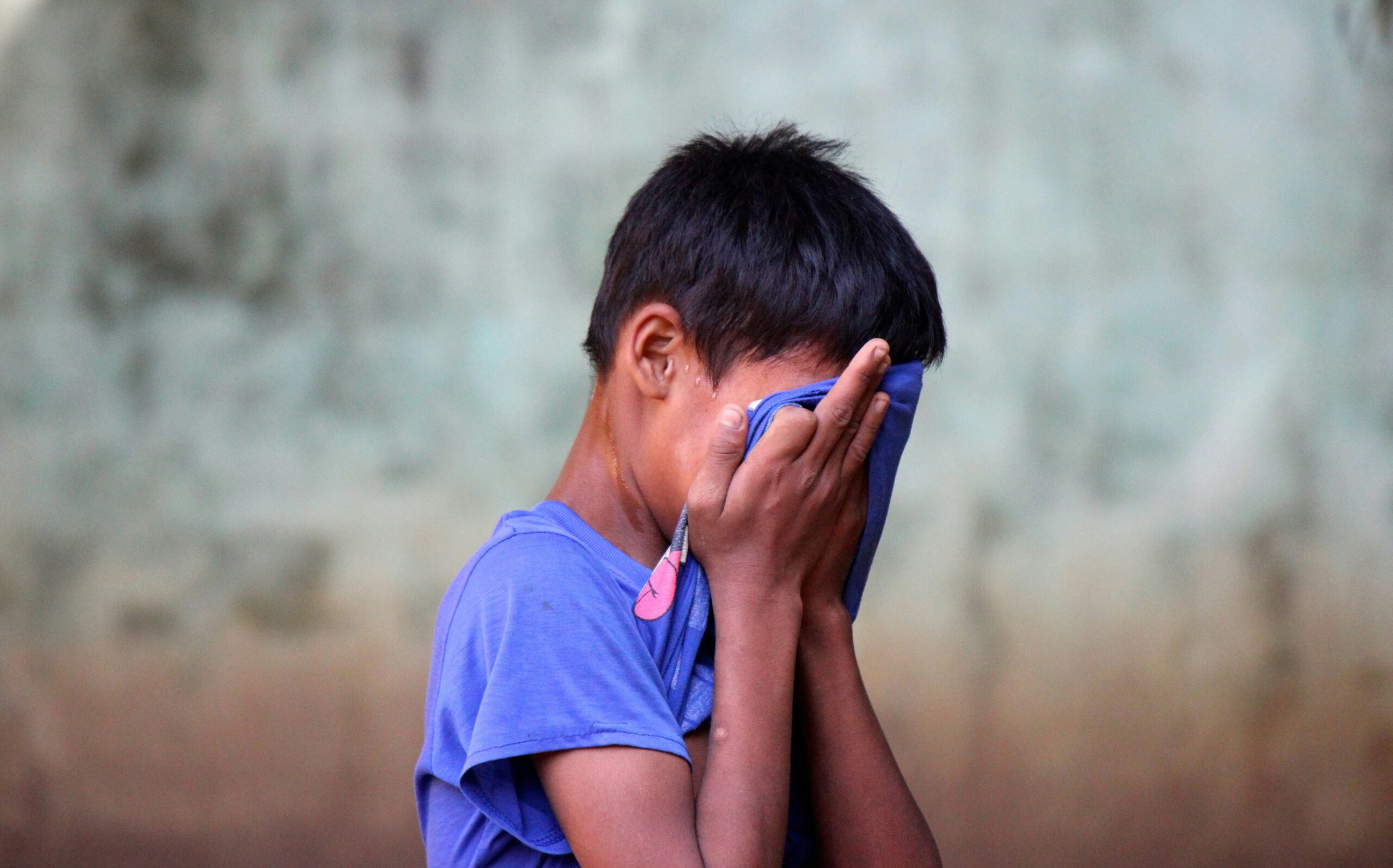What if you could shift from worry to respect?
From doubt to confidence?
From trying to control to letting go?
If you’re a parent of adult kids, there’s a good chance that you worry about them. (If you have younger kids, you probably worry, too, but for this purpose, I’m speaking to parenting older kids, though carryover is definitely possible.)
You’re likely worrying about whether they’re making good decisions.
Are they taking good care of their health? Are they planning their financial future? Is their job one that will benefit them in the long run? Do they have supportive and decent friends? Is their love relationship good for them? Are they parenting their kids in a positive way? Are they abusing substances? The list goes on.
Parents worry.
Worry goes hand in hand with feeling a lack of control or powerlessness. It gives the illusion that you’re doing something when there’s likely nothing you can do.
If you’ve made the all-too-common mistake of expressing your worry to your kids, you’ve probably found it doesn’t help much. It just irritates them or makes them clam up.
Why? Because your worry makes them feel inadequate. It carries a message that you don’t intend.
Put yourself in their shoes.
Think about what it’s like to be the receiver of a parent’s worry. What was it like for you when your parents worried about you?
Did you welcome it? Did you feel encouraged by it? Did it make you feel empowered?
Or did it feed into any self-doubt and uncertainties you may have had, or even worse, did it stir them up when you felt pretty confident?
While it comes from a place of concern, the effect of your worrying about your kids is to undermine their confidence in themselves.
Even a worried “vibe” with no words–just a furrowed brow–conveys the message, “You’re likely to fail, or something bad is going to happen. You’re not capable of figuring this out for yourself. You won’t be able to find your way. I don’t think you have what it takes.”
My parents were the King and Queen of worry.
Either the look on their faces or their words conveyed a certainty that either I was doing it all wrong or I was going to do it all wrong. Their worry told me that they thought I was doomed to failure.
Don’t get me wrong. My parents were intelligent, loving, well-intended people. But their approach to the world, and to me, was fraught with fear and pessimism. Danger was lurking around every corner, waiting to take me down.
They expressed no belief in my capacity to learn from my mistakes, my ability to handle life’s inevitable ups and downs, or the possibility that I could come out wiser due to experiencing them.
How did that affect me?
I have been someone who is plagued with self-doubt. Even in the face of significant successes, there has been an undercurrent of a belief that I cannot succeed at anything that matters to me.
It clouded my optimism and kept me from showing up fully and boldly. It hung like a dark cloud over me.
Obstacles and misfortunes are opportunities.
At some point, though, I discovered from first-hand experience and from wise teachers I was fortunate enough to meet along the way that any obstacles, misfortunes, or challenges one faces are excellent–and even necessary–opportunities to find out what you’re made of. I came to see that within them lies the gold, the transformative process that has made me into who I am in ways I value.
Struggle has value. Mistakes have value. Paths that turn out to be dead ends or scary or painful have value. Within them exist profoundly essential life lessons.
They are the stuff that forges the iron of our character into the beautiful shape we are capable of becoming.
I’m proud to say that even in the face of my parents’ doom and gloom predictions, I made life decisions of which they disapproved, and that turned out well for me.
I chose a career they disapproved of and thrived in every way. I chose love partners they disapproved of and thrived in that area also. Despite their predictions, in my own eyes, I have been successful in ways that are most important to me.
Of course, there were bumps. There were terribly dark and scary times. There were tremendous obstacles, and there was heartbreak. But that’s all part of the growing process. That stuff is the essential manure, the compost of life.
Shifting the lens through which you see your kids
Despite our best intentions, we often parent the way we were parented. It can sneak in quietly, so we don’t always see it.
When my youngest son was going through a tough, scary time as a teenager, I did a lot of worrying, including many nights of lost sleep.
During this time, he was also extremely uncommunicative with me, which added fuel to my worry fire.
At one point, though, I had a revelation. I saw clearly that I was seeing him and relating to him through a lens of fear and worry.
Even without words, I was non-verbally transmitting my worst fears and, along with them, my lack of confidence in him as I dwelled upon them in the privacy of my brain.
I saw clearly how damaging this was to him as well as to our connection.
From then on, I deliberately shifted my view. I started to see my son as a hero on the hero’s journey. What a difference that made!
What is the Hero’s Journey?
Fairy tales and myths worldwide contain a theme in which the hero goes in search of his fortune, which can be viewed symbolically as a process of going in search of who he really is beyond the family cocoon.
The hero’s journey involves encountering hardships as well as benefits.
Perils such as dragons, ogres, and devious tricksters, as well as beneficial encounters with wise guides and helpers, are part of the journey.
Treacherous inhospitable terrain and beautiful seductive lands are part of it, too.
The trials endured and the variety of experiences undergone grow the hero to become the person they are meant to be.
I decided to see my son as a hero on the Hero’s Journey.
I chose to trust that the hardships he was facing were the necessary experiences for growing him into the person he was to become and that he could meet them, wrestle with them, and come out stronger and wiser.
As I reflected on my own experience of finding my way on my own hero’s journey, I encouraged myself to trust that he, too, had everything he needed inside to face the difficulties along his way and that he, too, would figure it out. Just as I had.
This shift in my view of him was primarily internal. But it changed how he experienced me.
To my amazement, he became more communicative. He started sharing his dreams and ideas for the future, exploring them out loud. I listened with respect, care, and trust.
He blossomed in the light of this new, more optimistic view. He gradually came out of his cocoon and turned into a beautiful butterfly!
How to shift your lens and see your child as a hero
Think about your own life: Have you made “mistakes”?
Have you taken paths that you could only learn were not the best ones for you from first-hand experience, whether it was around work, love, health, or otherwise?
Have you gotten wiser due to the tough times you’ve been through, even if some of it wasn’t something you’re particularly proud of?
I hope you have. Because that’s what growing is all about.
The only way we truly learn who we are and what is important to us is through first-hand life experience.
If we’re living our parents’ lives—the ones they think we should—then we’re not finding our own unique path. That takes courage. That takes experimentation. That takes a risk.
The antidote to worry: change the lens through which you see your adult child.
Try this:
- Imagine holding your son or daughter in your mind’s eye with quiet confidence, trusting that they will find their way.
- Picture them as heroes on their Hero’s Journey, braving all their challenges with determination and a courageous spirit in their individual process of discovering who they are and uncovering their inner strengths.
- In your mind’s eye, imagine saying to them: “I have complete confidence that you have everything you need inside to find your way. With every difficult experience you undergo, you are like iron getting molded in the forge. It is making you into the amazing person that you are here to be. You will wonder why you are going through such trials. These are the times that will bring your greatest growth. Out of them, you will become stronger, more compassionate, and more capable of facing difficulties in the future. You will see this clearly when this difficult time is behind you. I promise. I look forward to witnessing how the amazing person you are unfolds into the even more amazing person you will become.”
- Re-visit this vision in your mind’s eye daily. Right before you fall asleep at night, as well as first thing in the morning, are especially good times to practice opening your mind to this alternative way of seeing.
- When you’ve spent time letting this new view of their struggles seep into your vision of them, look for opportunities to say something along these lines to them. Do your best to speak from your heart.
Don’t worry. Your kids will feel the difference even if you don’t say anything directly to your kids.
Isn’t this what you really want for them?
This powerful shift contains the truth of what you want for your kids, right? You want them to become resilient, wise, courageous, resourceful, and capable people who are confident in their capacity to ride the ups and downs of life and live in a way that is satisfying to them.
When you replace your worry with this vision, you and your kids will feel happier, hopeful, and optimistic.




What an interesting article! I loved reading it. I have two young adults so it was really helpful for me to read it. Thanks a lot for sharing.